Mayonnaise, commonly referred to as mayo, is a staple in many households, adding a creamy texture and tangy flavor to various dishes. However, if you have dietary restrictions or allergies, you might wonder, “does mayo have milk?” Let’s dive into this article, and find all the important if and buts about the mayonnaise.
Table of Contents
- What is Mayonnaise?
- Common Ingredients in Mayonnaise
- Does Traditional Mayo Have Milk?
- Variations in Mayonnaise
- Vegan Mayonnaise: An Alternative
- How to Read Mayo Labels for Dairy Content
- Homemade Mayonnaise: Control Your Ingredients
- Mayo and Dairy Allergies: What You Need to Know
- Common Misconceptions About Mayo and Dairy
- Conclusion
- FAQ: Does Mayo Have Milk?
- 1. Does traditional mayo have milk?
- 2. Can people with lactose intolerance eat mayo?
- 3. Is there dairy in low-fat mayo?
- 4. Are there any types of mayo that contain milk?
- 5. Does vegan mayo have milk?
- 6. How can I ensure my mayo is dairy-free?
- 7. What are some common ingredients in dairy-free mayonnaise?
- 8. Can I make homemade mayo without milk?
- 9. Why do some people think mayo has milk?
- 10. What should I do if I have a dairy allergy and want to eat mayo?
What is Mayonnaise?

Mayonnaise is a thick, creamy condiment made primarily from oil, egg yolks, vinegar or lemon juice, and seasonings. It’s widely used in sandwiches, salads, and sauces, valued for its ability to bind ingredients together and add moisture and flavor.
Common Ingredients in Mayonnaise
To address the question, “does mayo have milk?” Let’s explore the essential ingredients and their roles in creating traditional mayonnaise.
- Oil: Typically soybean, canola, or olive oil.
- Egg Yolks: Used as an emulsifier to blend the oil and water-based ingredients.
- Vinegar or Lemon Juice: Provides acidity and flavor.
- Seasonings: Salt, mustard, and sometimes sugar or spices for taste.
Does Traditional Mayo Have Milk?
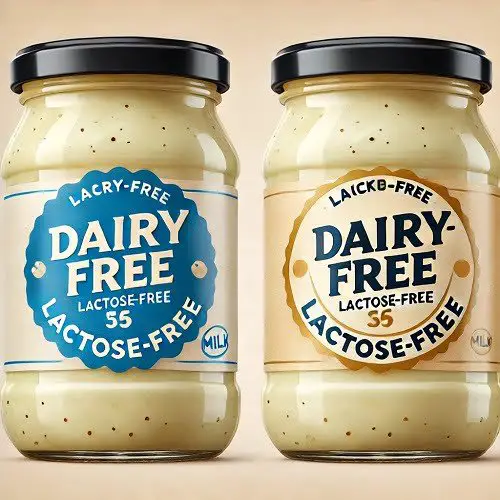
The straightforward answer to “does mayo have milk?” is no. Traditional mayonnaise does not contain milk or dairy products. The creaminess of mayo comes from the emulsification process involving oil and egg yolks, not from milk. Therefore, classic mayonnaise is generally safe for those who are lactose intolerant or allergic to dairy.
A L S O R E A D
Can Sweetened Condensed Milk Go Bad? All You Need to Know
How Long Is Oat Milk Good For After Opening? The Surprising Truth
Does Almond Milk Cause Acne? Debunking the Surprising Myth
What Does Goat Milk Taste Like? The Unexpected Joy
Does Canned Evaporated Milk Go Bad? Revealing the Truth
Variations in Mayonnaise
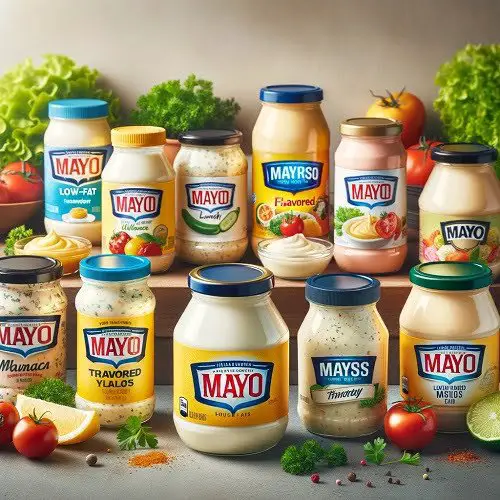
While traditional mayo does not have milk, it’s essential to be cautious with variations and flavored versions. Some specialty mayonnaises or spreads might include dairy-based ingredients or be produced in facilities that handle dairy. It’s essential to check the product label to ensure it accommodates your dietary requirements.
Popular Mayo Varieties:
- Traditional Mayo: No milk, just oil, egg yolks, vinegar/lemon juice, and seasonings.
- Low-Fat Mayo: May include additional ingredients to mimic the texture of traditional mayo. Check labels for dairy content.
- Flavored Mayo: Varieties with added flavors like garlic, herbs, or spices.While these products generally don’t contain milk, it’s important to check the ingredients.
Vegan Mayonnaise: An Alternative
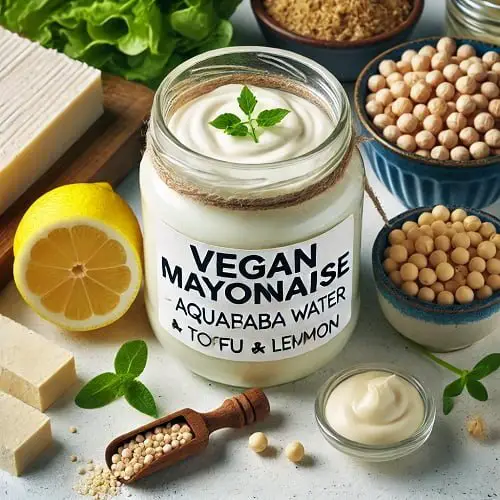
For those avoiding eggs and dairy, vegan mayonnaise is a popular alternative. But does vegan mayo have milk? The answer is a resounding no. Vegan mayo is made without any animal products, using plant-based ingredients to achieve a similar texture and flavor.
Common Ingredients in Vegan Mayo:
- Plant-Based Oils: Plant-based oils like canola, soybean, or avocado.
- Aquafaba or Tofu: Used as an emulsifier in place of egg yolks.
- Vinegar or Lemon Juice: For acidity and flavor.
- Seasonings: Similar to traditional mayo, with herbs and spices for taste.
How to Read Mayo Labels for Dairy Content
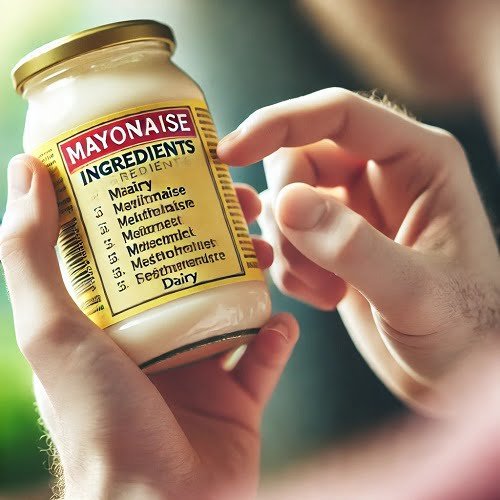
When wondering, “does mayo have milk?” reading the label is crucial. Here are some tips to help you determine if your mayo is dairy-free:
- Check the Ingredients List: Look for any mention of milk, cream, lactose, or other dairy derivatives.
- Look for Allergen Statements: Many products will have a statement like “contains milk” or “produced in a facility that processes milk.”
- Certifications: Some mayonnaises are certified dairy-free or vegan, providing extra assurance.
Homemade Mayonnaise: Control Your Ingredients

If you’re still unsure about store-bought options, making homemade mayonnaise allows you to control exactly what goes into your mayo. Here’s a simple recipe that answers the question, “does mayo have milk?”
Homemade Dairy-Free Mayo Recipe:
Ingredients:
- 1 cup neutral oil (such as canola or vegetable oil)
- 1 large egg yolk
- 1 tablespoon vinegar or lemon juice
- 1 teaspoon mustard (optional)
- Salt to taste
Instructions:
- In a bowl, whisk the egg yolk, vinegar or lemon juice, and mustard.
- Slowly add the oil while continuously whisking until the mixture emulsifies and thickens.
- Add salt to taste.
- To maintain freshness, keep in an airtight container in the refrigerator for no more than one week.
Mayo and Dairy Allergies: What You Need to Know
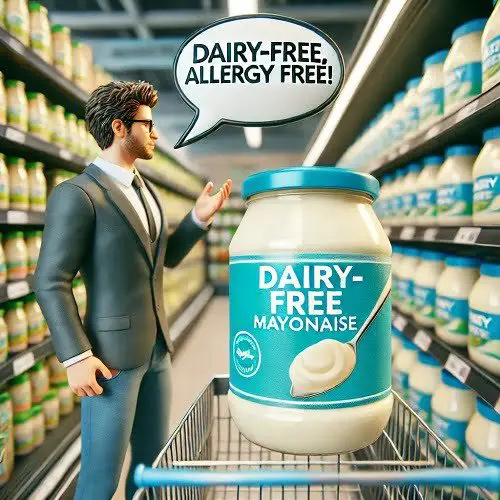
For individuals with dairy allergies, the question, “does mayo have milk?” is particularly important. Traditional mayo is typically safe, but cross-contamination in manufacturing facilities can be a concern. Always opt for brands that specifically label their products as dairy-free if you have severe allergies.
Common Misconceptions About Mayo and Dairy
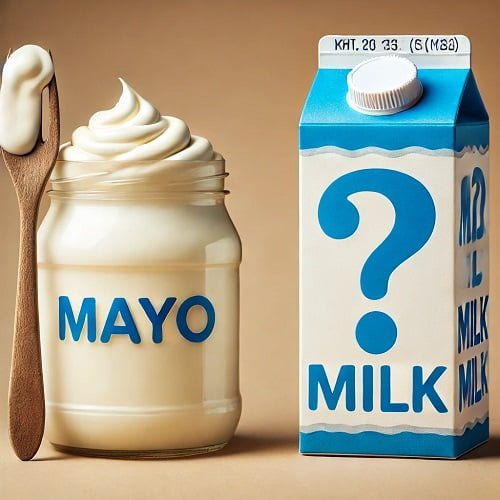
There are several misconceptions about mayonnaise and its ingredients. Addressing these can help clarify whether mayo has milk:
- Creamy Texture: Many assume the creamy texture of mayo comes from milk or cream, but it’s actually due to the emulsification of oil and egg yolks.
- Fat Content: The high fat content in mayonnaise might lead some to believe it contains dairy fat, but this is not the case in traditional mayo.
- Flavored Mayos: While some flavored mayos might include dairy, most stick to the traditional dairy-free recipe.
Conclusion

So, does mayo have milk? The simple answer is no, traditional mayonnaise does not contain milk. It’s made from oil, egg yolks, vinegar or lemon juice, and seasonings. However, always check the labels of flavored or specialty mayonnaises, and consider vegan options if you’re avoiding all animal products. With this knowledge, you can enjoy mayonnaise confidently, knowing it aligns with your dietary needs.
FAQ: Does Mayo Have Milk?
1. Does traditional mayo have milk?
No, traditional mayonnaise does not contain milk. The base ingredients for mayonnaise are oil, egg yolks, vinegar or lemon juice, and seasonings. The creaminess comes from the emulsification process involving oil and egg yolks, not from milk or dairy products.
2. Can people with lactose intolerance eat mayo?
Yes, people with lactose intolerance can typically eat traditional mayonnaise since it does not contain milk or dairy products. However, always check the label for any potential dairy ingredients or cross-contamination warnings.
3. Is there dairy in low-fat mayo?
Low-fat mayo might include additional ingredients to mimic the texture of traditional mayo, which could potentially include dairy. It’s important to check the label for any mention of milk, cream, or lactose.
4. Are there any types of mayo that contain milk?
While traditional mayo does not contain milk, some specialty or flavored versions might include dairy-based ingredients. Always read the ingredient list and allergen information to be sure.
5. Does vegan mayo have milk?
No, vegan mayonnaise does not contain milk or any other animal products. It uses plant-based ingredients like aquafaba or tofu to replace egg yolks and achieve a similar texture and flavor.
6. How can I ensure my mayo is dairy-free?
To ensure your mayo is dairy-free, read the ingredient list carefully. Look for any mention of milk, cream, lactose, or other dairy derivatives. Check for allergen statements and certifications that indicate the product is dairy-free or vegan.
7. What are some common ingredients in dairy-free mayonnaise?
Common ingredients in dairy-free mayonnaise include plant-based oils (such as canola or soybean oil), egg yolks or plant-based emulsifiers (like aquafaba or tofu), vinegar or lemon juice, and various seasonings.
8. Can I make homemade mayo without milk?
Yes, you can make homemade mayonnaise without milk. A simple recipe includes neutral oil, egg yolk, vinegar or lemon juice, mustard (optional), and salt. This ensures complete control over the ingredients and can be tailored to your dietary needs.
9. Why do some people think mayo has milk?
Some people might assume mayo has milk because of its creamy texture and high-fat content. However, the creaminess is due to the emulsification of oil and egg yolks, not milk or cream.
10. What should I do if I have a dairy allergy and want to eat mayo?
Don’t forget to check the label if you’re dairy-free and buying mayo. Opt for brands that specifically label their products as dairy-free, and consider making your own mayo at home to avoid any risk of cross-contamination.







There is definately a lot to find out about this subject. I like all the points you made
I’m often to blogging and i really appreciate your content. The article has actually peaks my interest. I’m going to bookmark your web site and maintain checking for brand spanking new information.